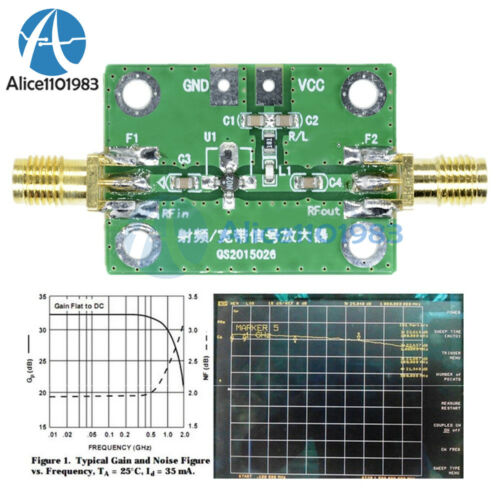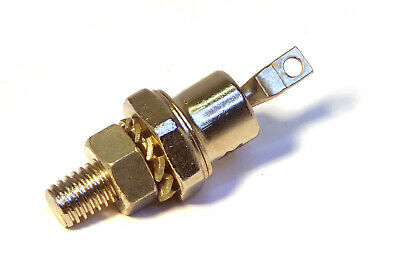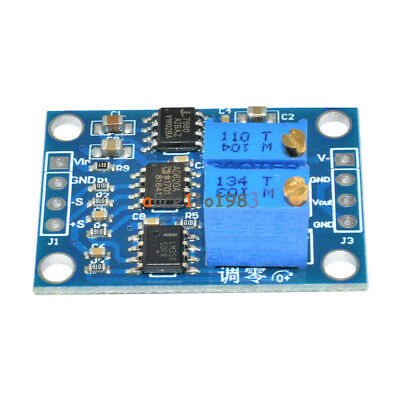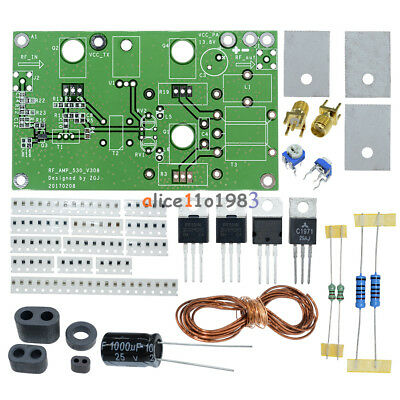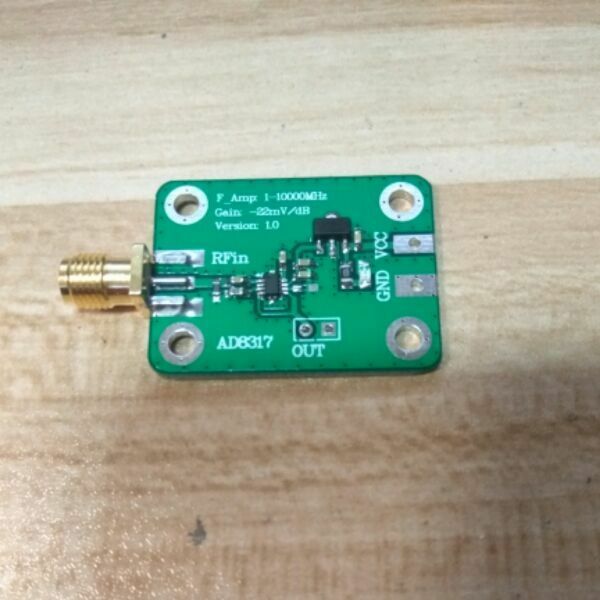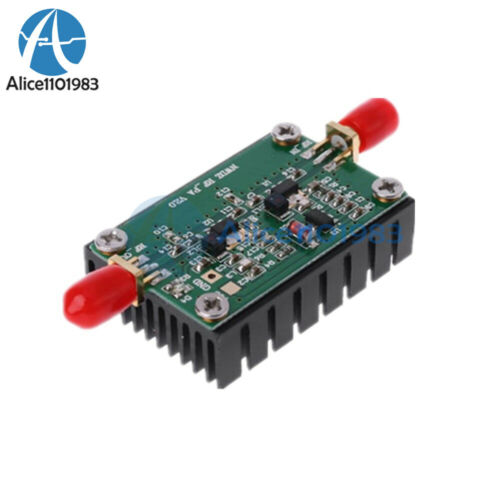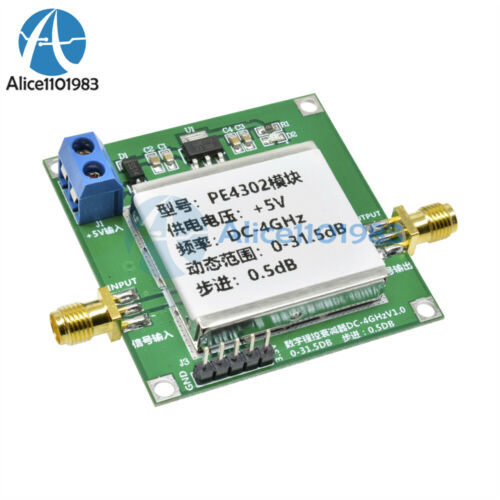-40%
Pride DX300 Low-Voltage power supply circuit board and bias control
$ 58.08
- Description
- Size Guide
Description
Here you see for sale a heavy-duty upgrade for the stock low-voltage power supply board found in the Pride model DX-300 amplifier. Might work fine in a KW-one, but I have never tried this, so you are flying solo if you want to try that.IF YOU ALSO NEED THE HIGH-VOLTAGE POWER SUPPLY BOARD FOR THIS AMPLIFIER, CHECK THE LISTING FOR A COMBO DEAL. BOTH BOARDS FOR A LOWER PRICE THAN TWO SEPARATE ORDERS.
They tell me I should include a disclaimer. Okay, THIS AMPLIFIER CONTAINS SOME INCREDIBLY DEADLY HAZARDOUS VOLTAGES THAT CAN AND WILL KILL OR MAIM YOU, OR BOTH! If you don't possess the skills to avoid injury, DON'T EVEN TAKE THE SCREWS OFF THE CABINET COVERS and hire someone who HAS those skills and the appropriate safety training.
Now that we have that out of the way......
The sharp-eyed folk who have seen this item for sale in the past will notice that this board looks a little different. The ginormous wirewound resistor we use to prevent overheating of the original resistors R38 and R39 has been replaced with a aluminum-cased 100-Watt power resistor. The reason is simple. Couldn't find a decent deal on the cylindrical resistors. The board layout got revised to fit the resistor you see in the first picture. Images showing how to install it show the old version. Gotta reshoot some more pics.
ONLY THE FIRST TWO PICS SHOW THIS VERSION OF THE BOARD. ALL THE OTHER PICS ARE REPRESENTATIVE, SHOWING INSTALLATION DETAIL.
All the parts that routinely overheat and fail on the factory-stock LV board have been upgraded for better reliability in operation and longer service life.
It includes an upgraded bias control rated at 5 Watts. The original is a 2-Watt control. This control also has a wider range of adjustment and can be used to reduce the AM-carrier level of a radio that lacks a carrier-power knob. You should NEVER push the AM-carrier output of a Pride beyond about 125 or 150 Watts, tops.
Yes, this new control has a switch on it. I screwed up and ordered the wrong control. No, it has no need for a switch on this control. Won't make it work any differently than the Taiwanese control we used for decades.
YOU MUST REMOVE THE OLD BIAS CONTROL ALONG WITH THE OLD LOW-VOLTAGE BOARD AND USE THE NEW BIAS CONTROL. THE OLD AND NEW CONTROLS ARE NOT COMPATIBLE.
The extra parts shown are packed with the board. They include a circuit breaker to protect the small transformer, the one that powers this board. The factory-stock 10-Amp fuse will NOT protect the small transformer from damage. You really need to install this breaker before you power up the amplifier. You can't just order a new original-type filament/bias transformer any more. The company who supplied that transformer for years has run out forever. Simply drill a 3/8-inch hole where shown in the pic, unsolder one of the two black wires to the small transformer from the long tie strip and solder it to the empty lug on the new breaker. The wire already soldered to the new breaker now goes to the tie-strip lug where you removed the black wire.
The "MOV" component is soldered to the screen-grid pin of the tube socket on one lead, the other one to the adjacent ground lug. This serves to protect both the new board and the tube in event of an arc inside the tube, like when you get the tube too hot.
The big, fat black diode on the solder side of the board serves to protect the bias control and bias circuit from surge damage if the tube arcs inside. Like when you get the tube too hot and it makes that "SNAP!" noise.
I also include a new red "Screen" LED. The original one nearly always gets clobbered. This board won't blow out the new Screen LED.
The original failure-certain zener diode used for the negative grid-bias voltage is now a series string of six 5-Watt zeners. Only five of them are in the circuit, one of them has a foil trace that shorts across it. You only need five of them to use the stock 4CX250B type tube. If you decide to walk on the wild side and try the "R" version of this tube, or the larger "8930" type tube, simply cut that foil trace at the "X" mark on the solder side. This will boost the range of the bias control an additional 20 Volts and prevent the hotter-type tube from overheating in the usual way. Much simpler and more cost effective to just use the stock "B"-type tube, IMHO. The jumper in the picture has been cut and a pair of wires soldered to each hole on this zener. The two wires lead to a toggle switch mounted on the rear panel if you prefer to select your tube type with a switch on the rear panel. I didn't show pics of this since it's not included with this sale.
The 5-inch long black wire takes the place of the skinny black wire that was the ground connection for the stock LV board. Simply unsolder the old black gronnd wire from the chassis-ground lug and solder one end of the new black wire there. Once the board is in place, solder the other end to the empty ground lug at the rear of the new HD board. The ground connection to this board is far too important to use the old push-on pin.
If you have not performed the "SUICIDE PREVENTION" steps shown on our web site for this amplifier, that would be a very, very good idea. A very good idea indeed!
Unless, of course you just like to blow up your Pride (and the tube) for no good reason. If that's the case, just ignore the suicide-prevention strategies.
THERE IS NO WEB PAGE WITH STEP-BY-STEP PICTURES FOR THIS BOARD.
YET.
I include a printed text file that contains all the steps needed to install this board in place of the factory-stock PC board. If you are confident reading the schematic, especially the MUCH-improved manual posted for FREE at cbtricks dot com, you should have no trouble. And if you aren't quite confident of reading a schematic, just be patient. I'll have more-detailed instructions posted on the web as soon as possible.
Apparently Ebay won't let me link you to the excellent and much-improved service manual for this model. It's a free download. But if I put the name "cbtricks.com" in this sale listing, I'll bet they remove it.
For now, the printed instruction sheet is what we have.
The picture is representative. They all look like THE FIRST TWO PICTURES. This is a new version, and the rest of the pictures are for instructional purposes. The installation of the new version is the same as for the older ones shown in the rest of the pics.
If you already understand what it is and what it's good for, you can decide if you need it or not.
If you don't know what it is and what it's for, you probably DON'T need it.
ALL SALES ARE FINAL! NO RETURNS FOR ANY REASON OF ANY KIND NO MATTER HOW GOOD IT SOUNDS! And if you blow it up feel free to buy another and try your luck again.
IF YOU HOOK IT UP WRONG IT WON'T WORK. I WON'T TAKE IT BACK NO MATTER HOW GOOD YOUR INTENTIONS MAY HAVE BEEN.
If you hook it up right, remember that EVERY other detail in the amplifier must ALSO be right before it will work properly. The Pride packs a lot of power in a small package. You only need have ONE small detail wrong, or one small defect elsewhere inside to cause trouble, or maybe even blow out your tube, or some other soldered-in component. This amplifier contains NO protection-shutdown circuits of any kind beyond the fuse and the new breaker that we supply. Those will keep you from burning out either transformer, but that's about all the protection there is beyond your good judgement.
We ship USPS Priority Mail no later than the second business day following receipt of payment.
Free shipping ONLY to USA destinations!
All sales outside USA are by Ebay Global Shipping Program. No, I have no way to find out what that will cost you. Ask Ebay. They won't tell me.
All routine Ebay precautions apply. Scammers take your nonsense elsewhere.
Please.











